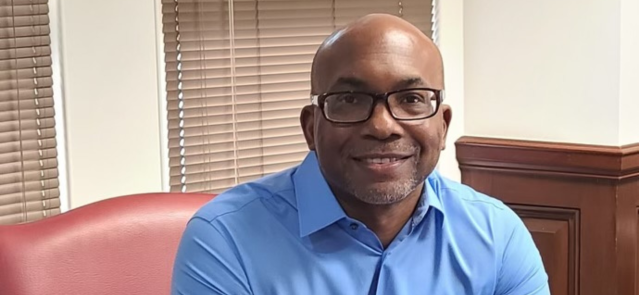Stay ahead of the curve as a political insider with deep policy analysis, daily briefings and policy-shaping tools.
Request a DemoMeet the chief evaluator of Georgia’s sex offenders
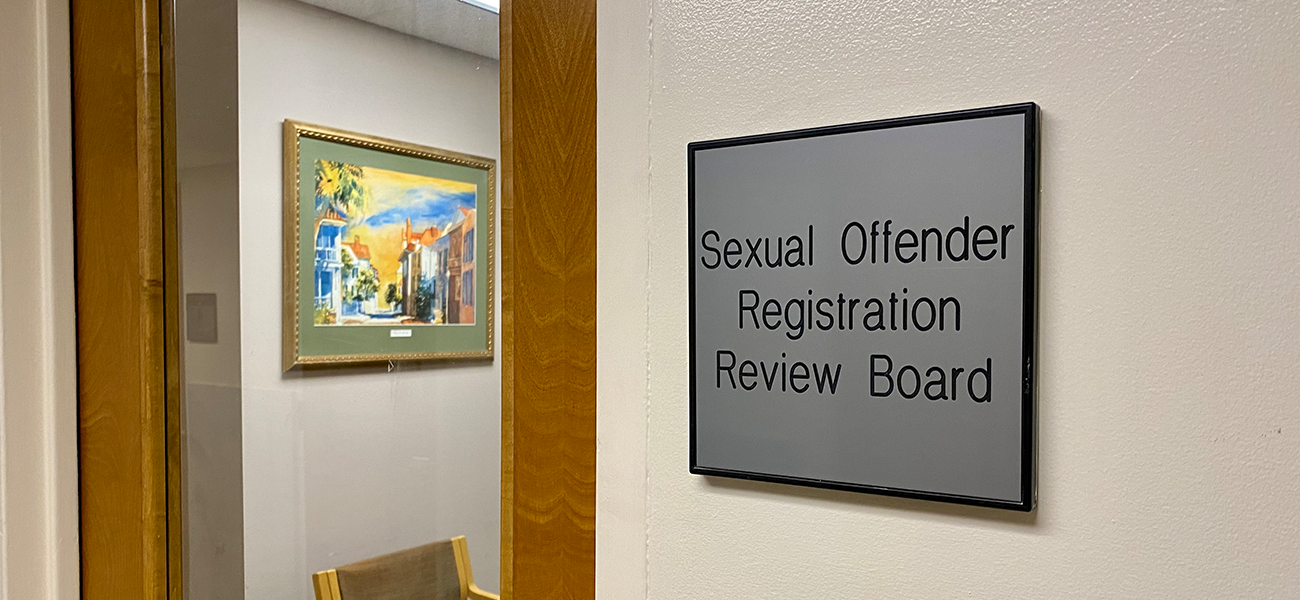
SORRB is headquartered in the James H. "Sloppy" Floyd Building across from the State Capitol in Atlanta. (Credit: Beau Evans for State Affairs)
- Playmaker: Tracy Alvord.
- Role: Executive Director of the Georgia Sexual Offender Registration Review Board.
- Tenure: 2010 to present.
Sexual abuse was something nobody talked about in the small upstate New York town outside Buffalo where Tracy Alvord grew up. Now, she deals with it on a daily basis.
For the past decade, Alvord has headed up the little-known state agency that plays a big role in how Georgia’s more than 23,000 sex offenders are tracked after they’ve served time in prison for convictions of rape, child molestation or possessing child pornography.
- Read about how ankle monitors are being removed from many of Georgia’s most serious sex predators in our story, “Ankle Monitors Gone for Hundreds of Sex Predators in Georgia.”
‘My goal is to help people that do not want to do this again’
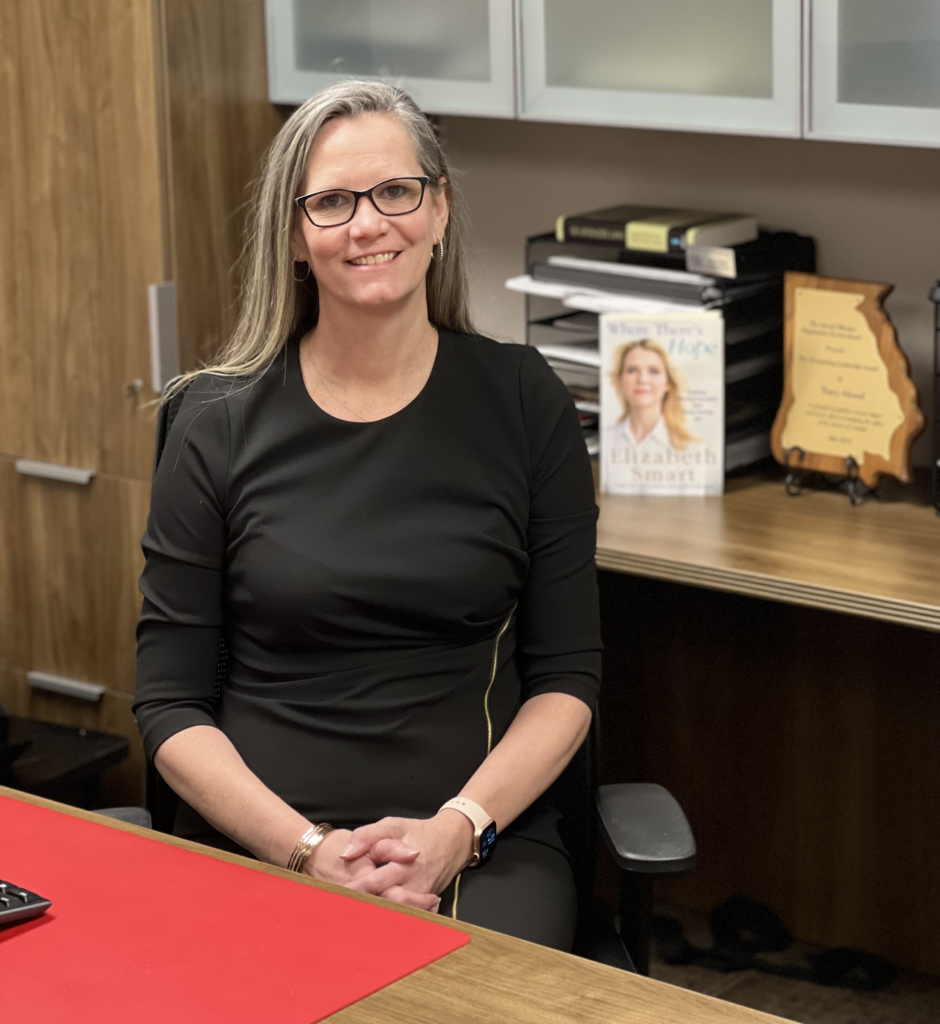
Alvord is the executive director of the state Sexual Offender Registration Review Board (SORRB) which classifies Georgia’s sex offenders according to certain risk levels. Its aim is to help police and parole officers decide which offenders need the closest monitoring.
With a tenure spanning most of the agency’s existence, Alvord has shaped how her small team of investigators and evaluators review loads of criminal records and psychological reports to assign every sex offender an official risk level. It’s painstaking work that Alvord believes not only helps local authorities stave off future sex crimes but also often leads sex offenders themselves to turn their lives around.
“My goal is to help those people that do not want to do this again,” Alvord said in a recent interview. “I have to believe there are those that do not want to do this again. We’re in trouble if they don’t want to change.”
- Learn more about how SORRB classifies Georgia’s sex offenders in our Explainer story, “How Georgia Evaluates Thousands of Sex Offenders.”
‘I felt like I couldn’t protect them’
Alvord joined the SORRB as a part-time case evaluator in 2008, two years after state lawmakers created the agency as part of a sweeping overhaul of punishments for many sex crimes. She arrived at SORRB after working for more than two decades as a private counselor specializing in sex-offender assessment and treatment, including at Atlanta’s Highland Institute for Behavioral Change.
She has also specialized in substance-abuse treatment and domestic violence with the state Department of Human Services Division of Family & Children Services, marking a concern for children’s safety that traces back to her college days.
Alvord initially wanted to work with abused children as a master’s student at New York’s St. Bonaventure University. While there, she did an internship focused on children that showed her the damage sexual abuse can inflict on society’s most vulnerable. It rough a rough, illuminating experience for her.
“I felt like I couldn’t protect them,” Alvord said of the children she met through the internship. “It was too overwhelming. I felt helpless.”
Her next internship in a federal maximum-security prison convinced her to shift course and target the source of child abuse: the abusers themselves.
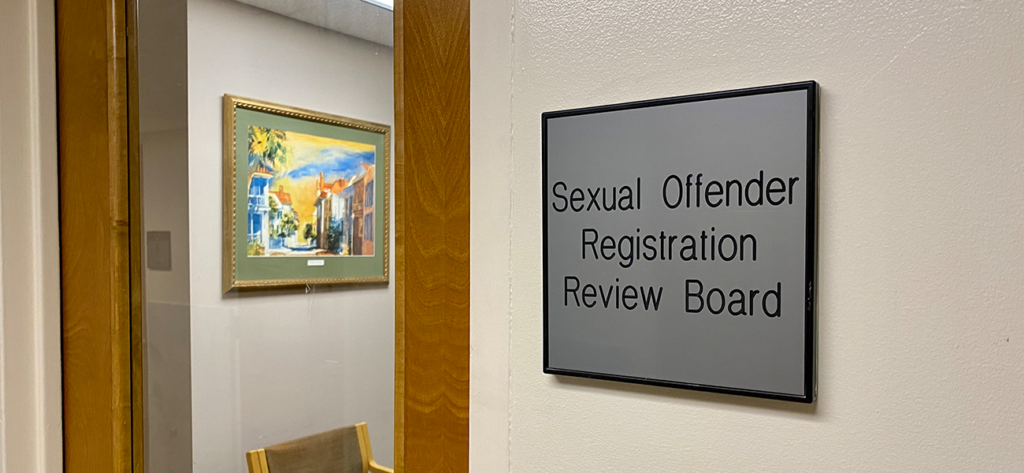
‘The registry is watered down’
As SORRB chief, Alvord oversees investigations into the criminal backgrounds and psychological profiles of hundreds of Georgia’s sex offenders monthly, each of whom receive one of three risk levels that the agency’s volunteer board approves.
The risk levels aim to determine an offender’s risk for committing future sex crimes. Each carries certain registration and monitoring rules. Until recently, the highest risk category, called “sexually dangerous predators,” automatically required wearing an ankle monitor for life.
The risk levels’ criteria have seen few revisions since 2006, and Alvord wants to change that. She’s now seeking state lawmakers’ help in the coming years to tighten up what each risk level means and which sex offenders should qualify for them.
With clearer risk levels, Alvord said Georgia should be able to streamline its sex registry so that only the most serious sex offenders appear on the publicly available list. Other less-serious offenders might shift to an internal registry that only local police can see, she said.
“With having so many sex offenders, the registry is watered down,” Alvord said. “We need to identify those who need the most significant management due to potential risk, so that our resources are not being watered down as well.”
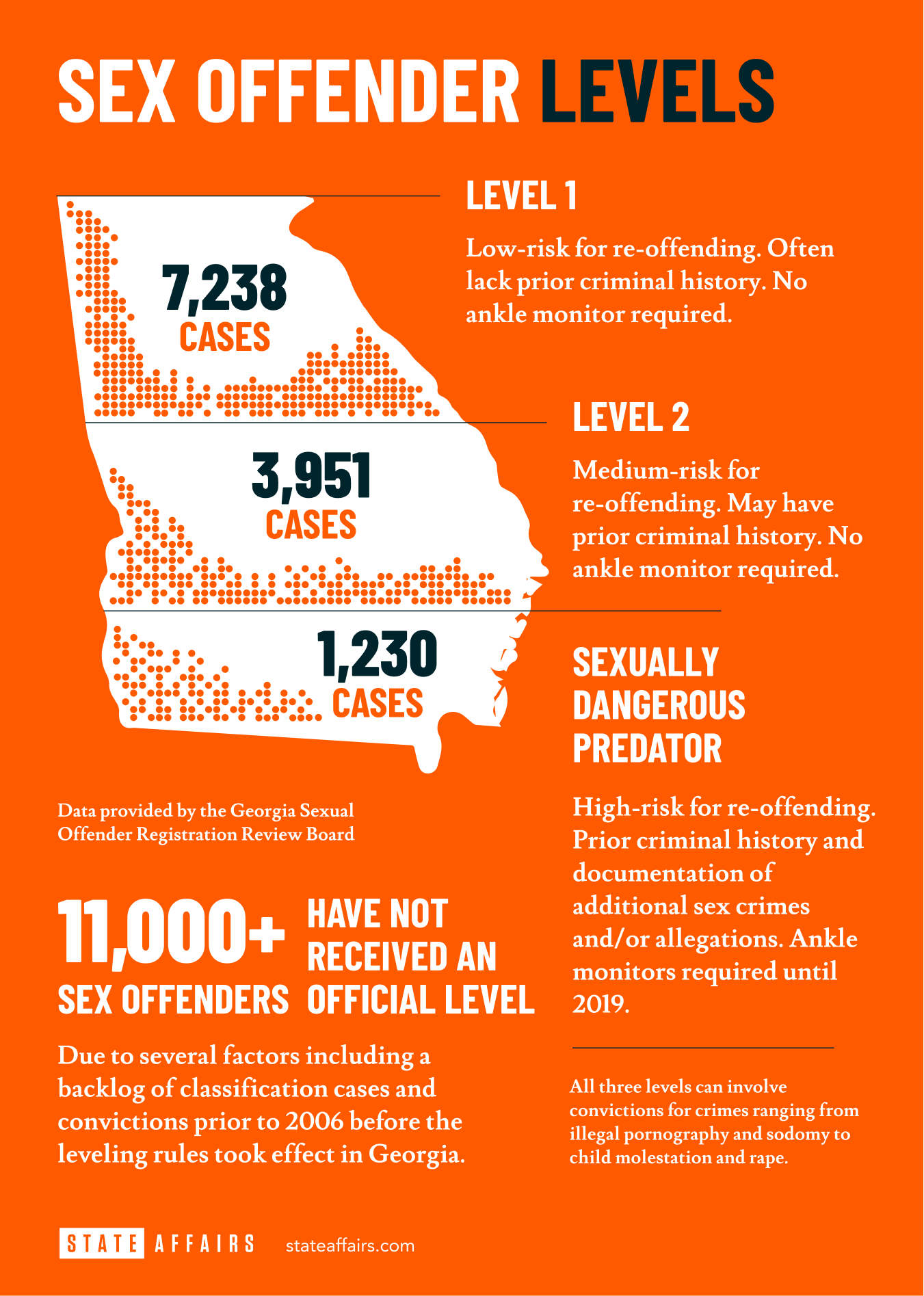
‘Georgia does a good job of making decisions as best as possible’
SORRB has faced many legal challenges over Alvord’s tenure from sex offenders who dispute the risk level they’ve been given, particularly when the level requires them to wear an ankle monitor even after they complete their sentences.
In 2019, a convicted Georgia sex offender named Joseph Park secured a ruling from the state Supreme Court that scrapped a requirement for him to wear an ankle monitor for life. The court called that practice an unconstitutional form of search and seizure. Other lawsuits filed in Georgia courts against the agency have come from sex offenders who faulted the complicated process for appealing their risk levels in court and requesting a new evaluation from SORRB.
Alvord is now eying funds for a study to research what degree Georgia’s risk-leveling system makes a dent in curbing how often convicted sex offenders commit additional crimes after leaving prison. Amid challenges, Alvord believes Georgia outdoes many other states when it comes to determining sex offenders’ actual risks, thanks to how SORRB investigates a wide range of information on each offender’s background rather than relying mostly on the terms of a conviction.
“Georgia does a good job of making decisions as best as possible,” Alvord said. “I’ve talked to people in other states and I don’t think that’s the case. I’m really proud of Georgia for that.”
Which of Georgia’s leaders do you think we should profile next? Share your thoughts/tips by emailing [email protected].
Newly minted Senate Minority Leader Harold Jones II: ‘I’m not the typical back-slapping politician’
Nearly 10 years into legislative life, Sen. Harold Jones II wouldn’t change anything about the experience. “I love every minute of it. Even when I hate it, I love it,” the 55-year-old Augusta Democrat told State Affairs. Come January, Jones will add another role to his legislative duties: Senate minority leader, a job held for …
Gov. Kemp calls on state agencies to be fiscally restrained amid record $16.5B surplus
The Gist Gov. Brian Kemp asked the state’s 51 government agencies for continued fiscal restraint when drafting their amended fiscal year 2025 and 2026 budgets. Most agencies adhered to his request even as the state’s general fund surplus hit a record $16.5 billion last month. Forty-five agencies, excluding state courts, followed the governor’s instructions to …
Georgia defies bomb threats as election chief declares a “free, fair and fast” vote amid record turnout
ATLANTA – Despite dealing with over 60 bomb threats, Georgia’s election chief said Tuesday the state’s general election went smoothly. Georgia had a record turnout with nearly 5.3 million people voting, Secretary of State Brad Raffensperger told reporters. Election officials in the state’s 159 counties have until 5 p.m. to certify votes. “We had a …
In the (state)house: Meet the newest members of the Georgia legislature
When lawmakers reconvene at the state Capitol on Jan. 13, there’ll be a cadre of new faces in the 236-member Georgia General Assembly, one of the nation’s largest state legislatures. All 236 statehouse seats were up for election this year. Most candidates ran unopposed. Incumbents in contested races easily kept their seats, with the exception …

